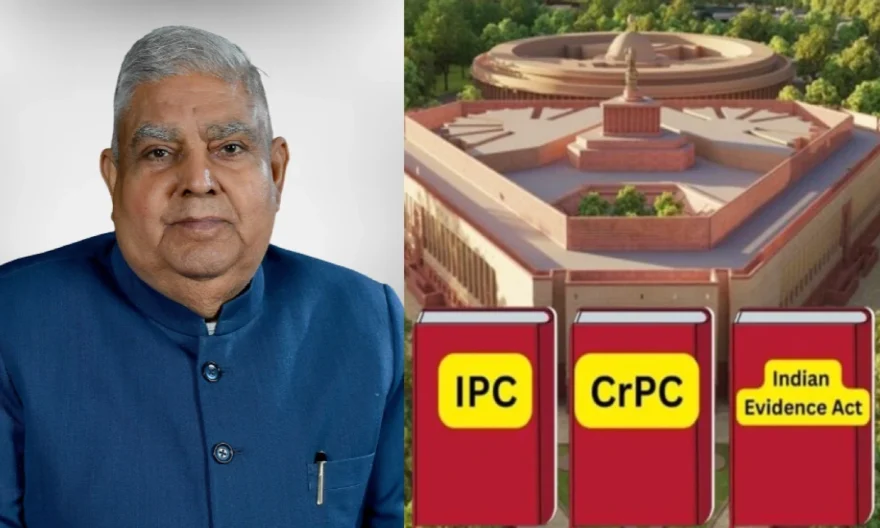
The Rajya Sabha Chairman, Jagdeep Dhankhar, received reports on the three bills aimed at replacing criminal and procedural laws on Friday.
Brij Lal, chairman of the standing committee on home, met with Dhankhar at Parliament and delivered the three reports.
Upon the introduction of the Bharatiya Nyaya Sanhita, Bharatiya Nagarik Suraksha Sanhita, and Bharatiya Sakshya Bills in August by Home Minister Amit Shah, he appealed to the Speaker to refer these measures to the standing committee for thorough examination.
Shah emphasized that the existing laws guiding criminal jurisprudence are remnants of colonial legacy, originating from the British Raj, focusing on punishment, whereas the proposed laws prioritize justice.
The standing committee, operating under the Rajya Sabha secretariat, was given three months to scrutinize these bills aimed at replacing the Indian Penal Code, CrPC, and the Evidence Act, which constitute the foundation of Indian criminal jurisprudence. Earlier this month, the parliamentary panel endorsed the three reports, suggesting various amendments while retaining their Hindi nomenclature. However, approximately 10 opposition members submitted dissent notes.
The committee proposed a more stringent approach toward deaths caused by negligence, aiming to address criticisms of the current leniency in statutes.
The committee has also proposed a reduction in sentence for those convicted of deterring public servant from discharging their duties.
It recommended reducing sentences for individuals convicted of obstructing public servants from fulfilling their duties. For example, Section 353 of the Indian Penal Code (IPC) allows a maximum of two years of imprisonment, which the committee might seek to reduce to one year. This law is frequently employed against protestors, prompting the view that leniency should be exercised with ordinary protestors.
The committee allegedly supported a gender-neutral adultery law and suggested punitive measures for non-consensual sex between men, women, and transgender individuals, among other recommendations.




